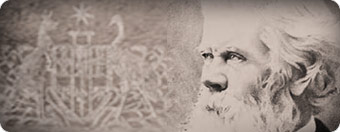The Australia Day public holiday yet again led to discussion about Australia becoming a republic. The response by the Prime Minister (Mr Malcolm Turnbull) a notable advocate in the past of Australia becoming a republic, was that he had no appetite for a heroic defeat. The obvious difficulty with the concept of a republic is not the sentiment, but its structure. For those who favoured a minimalist republican model, the referendum in 1999 was not sabotaged by the monarchists, but by those who favoured a direct election of the head of state. Until some consensus on the favoured model is achieved, a yes vote is unlikely to be successful. That would be true even if there was a two stage process: people may not be willing to vote “yes” for a republic for fear that their particular model might not be accepted in the second vote.
Other symbolic aspects of the national heritage might be more readily amenable to change. One is the continuing observance of a public holiday merely for the monarch’s birthday. The Queen’s birthday is not a public holiday in England. The other is the celebration of our national day on 26 January. Little more need be said of the first issue, but much could be said about the second.
The Australia Day holiday on 26 January celebrates the arrival of the First Fleet to Australia. At that time and for many years afterwards that day embraced English settlement of what was conceived to be a barren country. We now know that to be untrue. There was and is much to celebrate about our English heritage, but it could hardly be said that the colonisation of a country is one of those matters which continues to be a cause for celebration. We can and should celebrate our collective achievements and reinforce the things that provide all Australians with a sense of belonging. This can be done, and is probably best done, independently of the first settlement.
There are few countries in the world which celebrate their colonisation or base their national day on such an event. The United States does not have a national public holiday for the settlement of Jamestown by the English in 1607 or by the Pilgrims in 1620. New Zealand once celebrated its formal settlement on 29 January 1840, but its national public holiday is now based on a date which was the first signing of the Treaty of Waitangi on 6 February 1840. That is controversial to some because of the events relating to the Treaty and its aftermath, but the date of the national day is in sharp distinction to the basis for our national day.
There is a celebration in the United States and in many countries in South America of the date (12 October 1492) when Christopher Columbus claimed to have sighted land in what is now known as The Bahamas. This celebration is controversial to some because obviously it involved the commencement of a savage invasion of central and southern America by European powers. Similar negative connotations might be felt by some to apply to the first sighting of the Australian mainland by Captain Cook in 1770, but his was not the first sighting or landing on the continent by a European in any event.
The most common date celebrated as a national day around the world is some important political or legal event. For most countries in South America and Africa the national day is usually the date of independence from their colonial masters. This is consistent with the tradition that exists in the United States of America whose national day commemorates the publication of its Declaration of Independence from Great Britain. The French national day, which celebrates an event of symbolic resistance against the King, is not inconsistent with this approach.
Canada celebrates the anniversary of the enactment of what was then the British North American Act by the Parliament of the United Kingdom on 1 July 1867, which combined the three colonies of British North America into a single country called Canada.
There are obvious parallels for Australia with the Canadian tradition. One of the difficulties with the celebration of the enactment of the Commonwealth of Australia Constitution Act (UK) is, however, that it came into force on 1 January 1901. Celebrating a national day on New Year’s Day is hardly conducive to a celebration of a national day; particularly as it occurs in the midst of the summer holidays. The legislation was passed on 9 July 1900, but this was an act of the United Kingdom Parliament, and not the Australian people. The Act was preceded by successful referendums in New South Wales, Victoria, South Australia, Tasmania and Queensland in 1899, but the referendums occurred on different days in each State. The referendum in Western Australia only occurred on 31 July 1900; after the passage of the act in the United Kingdom Parliament.
There are of course the Australia Acts of 1986. These Acts were acts of each State and of the Commonwealth, but arguably the critical Act was an act of the Parliament of the United Kingdom. The Acts settled some constitutional issues, particularly concerning the States, but clearly Australia existed in its own right well before the Commonwealth and the United Kingdom Acts came into force on 3 March 1986.
Many notable achievements occurred in Australia which underlies our current view of a properly elected government. The milestones for that development, such as the removal of the property requirement for voting, the entitlement of women to vote, compulsory voting, preferential voting, the entitlement of all Australian citizens to vote regardless of race, the lowering of the age of voting to 18 and the establishment of equal (or nearly equal) electoral sizes, however, took place over a century. It would be difficult to choose any one event as an event which would form the basis for the national day.
There is nothing particularly honourable about the rebellions at Castle Hill or Eureka, let alone the Rum Rebellion, and they were, in any event, short lived and of little moment in the development of the nation. We are terribly fortunate in being able to make that statement.
There is no other event that particularly strikes as embodying the national spirit. Historically it has been said that Australia came of age at Gallipoli and Paul Keating will point to Kokoda, but there is an established day for commemorating those events. Gallipoli, Kokoda and other military events clearly should be treated separately from other aspects of the nation’s life and as days for commemoration, rather than celebration.
 If federation is the best event upon which to base a national day, there is one event relating to it that might be said to nicely encapsulate the achievement. On 24 October 1889, Henry Parkes, a person who deserves much credit for federation, gave a speech at Tenterfield where he called for the creation of a “Great national government for all of Australia”. In that speech Parkes referred a number of times to the experience of the United States. He referred to the fact that Australia had a population of about the same size as the United States when it became independent; adding:
If federation is the best event upon which to base a national day, there is one event relating to it that might be said to nicely encapsulate the achievement. On 24 October 1889, Henry Parkes, a person who deserves much credit for federation, gave a speech at Tenterfield where he called for the creation of a “Great national government for all of Australia”. In that speech Parkes referred a number of times to the experience of the United States. He referred to the fact that Australia had a population of about the same size as the United States when it became independent; adding:
“Surely what the Americans have done by war, Australians can bring about in peace.”
It is true that Parkes referred in particular to the desirability of one Australian army, and one railway gauge. But that kind of practical politics is also a feature of modern Australian politics. There are few politicians who are prepared to engage in the kind of floury rhetoric common in the United States, and even fewer Australians who would be prepared to accept that as a rational way of achieving good public policy.
Parkes in calling for the creation of conventions to devise the constitution described the likely result as follows:
“There will be an uprising in this fair land of a goodly fabric of free Government, and all great national questions of magnitude affecting the welfare of the colonies will be disposed of by a fully authorised constitutional authority.
This means a distinctive executive and a distinct parliamentary power for the whole of Australia, and it means a Parliament of two Houses, a House of Commons and a Senate, which will legislate on these great subjects.
…
All great questions will be dealt with in a broad manner just as the Congress deals with the national affairs of the United States and as the Parliament of the Dominion of Canada deals with similar questions.”
It is true that apart from the implicit description of the system of government as being democratic, there is no reference to other matters that would be regarded as a significant part of the Australian polity. No mention is made of the rule of law and personal freedom. None of these things, of course, were evident in 1788 either: the first settlement was little more than a prison. The critical thing is that the speech advocated the creation of a nationally elected government which would improve the welfare of all the people on the continent.
There are some aspects of the Australian identity that might be thought to have been derived from the convict era or from the free settlers who arrived soon after – the egalitarian ethos, the irreverent view of authority, the informality, individualism, self-reliance. But none of them can be said to have been derived from the fact of first settlement and each of them have no doubt taken time to become part of the national consciousness. All of them can (and should be) celebrated, but that can be done on whatever day which is chosen as a basis for our national day.
It is desirable to find another suitable date as the foundation for the celebration of these aspects of the nation of which we can be proud. At this time in our national nation’s history it does not seem right to celebrate all of the things that are good about Australia on 26 January.
Peter Hastie, QC
Photo: By Australian Overseas Information Service – National Archives of Australia, FAL, https://commons.wikimedia.org/w/index.php?curid=8846997




 If federation is the best event upon which to base a national day, there is one event relating to it that might be said to nicely encapsulate the achievement. On 24 October 1889, Henry Parkes, a person who deserves much credit for federation, gave a speech at Tenterfield where he called for the creation of a “Great national government for all of Australia”. In that speech Parkes referred a number of times to the experience of the United States. He referred to the fact that Australia had a population of about the same size as the United States when it became independent; adding:
If federation is the best event upon which to base a national day, there is one event relating to it that might be said to nicely encapsulate the achievement. On 24 October 1889, Henry Parkes, a person who deserves much credit for federation, gave a speech at Tenterfield where he called for the creation of a “Great national government for all of Australia”. In that speech Parkes referred a number of times to the experience of the United States. He referred to the fact that Australia had a population of about the same size as the United States when it became independent; adding: